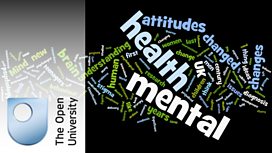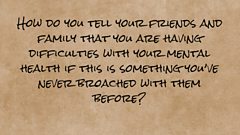Transient amnesia; Mindfulness in schools; Insiders' Guide; Autism in Somali culture
Is the enthusiasm for mindfulness in schools running ahead of the evidence? And how to approach friends and family to say that you're having difficulties with your mental health.
Claudia Hammond's guest today is Tim Dalgleish a clinical psychologist at the MRC Cognition and Brain Sciences Unit in Cambridge.
Transient global amnesia is a sudden, temporary episode of memory loss that can't be attributed to a more common neurological condition, such as epilepsy or a stroke. Following a letter from a listener who suffered an episode of this curious condition we were intrigued to find out how it is triggered and what's really occurring in the brain. Claudia Hammond spoke with Adam Zeman, Professor of Cognitive and Behavioural Neurology at Exeter University.
Is the enthusiasm for mindfulness in schools running ahead of the evidence? The skill of learning to become aware of what's going on around you and in your body and mind at a given moment has been shown to benefit people who've had recurrent episodes of depression. An increasing number of schools are holding mindfulness classes. But when it comes to the research on its benefits in school, the results are mixed. Andre Tomlin started the blog Mental Elf which examines the evidence when it comes to mental health so we got him into the All in the Mind studio to help us examine what difference mindfulness does and doesn't make in school.
The latest Insiders Guide to getting the best out of mental health services asks: how do you tell your friends and family that you are having difficulties with your mental health if this is something you've never broached with them before? We hear from Stephen Buckley, Head of Information at Mind, Lisa Rodriguez who has had mental health issues herself and has long experience of managing mental health services, psychiatrist Sri Kalidindi and GP Daniel Dietch.
Autism spectrum disorder is a lifelong condition which can affect how a child or adult communicates with and relates to other people. Scientists are still trying to understand the causes and why symptoms can range from the mild to the severe. The Somali language doesn't have a word for autism, so when Nura Aabe's son Zak was diagnosed with autism at the age of two and a half she was at a loss to explain the diagnosis to others in the Somali community in the UK. As she explains to Claudia Hammond she was inspired by her experience to write a play called Yusuf Can't Talk
Producer: Adrian Washbourne.
Last on
![]()
All in the Mind is produced in partnership with The Open University.
Clip
-
![]()
How do you tell friends and family?
Duration: 01:24
Broadcasts
- Tue 30 May 2017 21:00大象传媒 Radio 4
- Wed 31 May 2017 15:30大象传媒 Radio 4
Podcast
-
![]()
All in the Mind
The show with the latest evidence on psychology, mental health and neuroscience.





